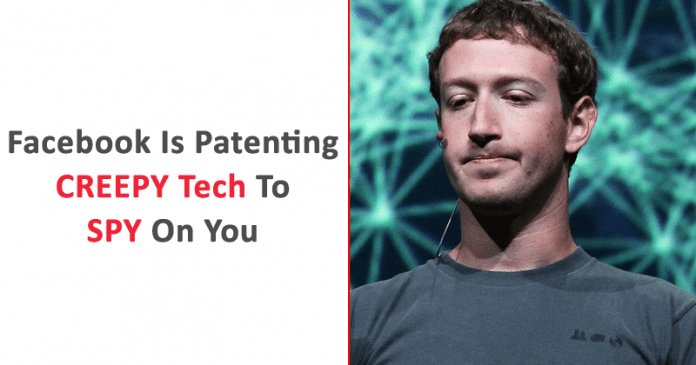Since 2008 it has been found that the data collected from users are not safeguarded from the commercial looks of third parties, and the scandals have been proof of this. But there is information that could be worse! The social network giant, of course, Facebook has promised to “do better,” but a review of Facebook’s patents reveals how the company wants to keep up with all aspects of our lives: our identity, who we are close to, the state of our love relationship, our political opinions, religious, sports and more. According to the New York Times, Facebook has asked for patents to use the front cameras to read user expressions and determine if we like the content displayed in our feed. The company also wants to monitor our socioeconomic status, how many hours of sleep we sleep and even tried to predict when their friends will die. Even if Facebook says that its patent applications do not necessarily display its future product plans, they nevertheless expose the company’s constant hunger for the collection of personal information from users to thereby commercially monetize, sell and manipulate data.
Facebook’s creepy patents
Despite promises made by Mark Zuckerberg, these seven Facebook patent applications reveal the company’s plans to accumulate and exploit their personal information and here are they:-
1. Create a profile of the user’s relationship status
Patent 14/295,543 analyzes data relating to the number of times the user visits another user’s profile or the number of people in his or her profile picture to predict whether that user is engaged in a love relationship.
2. Categorize based on the person’s personality
This patent suggests the use of personal messages and posts to analyze personality traits. By determining the extent of extroversion, emotional stability and the user’s thinking process, based on the preferred and visited news segments or ads.
3. Predict the future of the user
This patent application proposes to use the messages of the owner of the profile and its posts, along with credit card transactions and location, predicting occurrences of major life events such as birth, death or graduation.
4. Identification of the user’s camera
Another patent suggests the analysis of photographs to establish an exclusive “signature” of the camera based on defective pixels or scratches on the lens. This signature can be used to find out who sent the photos clicked by the device that took them.
5. Spying on the user
This patent, which has also been requested, aims to use the phone’s microphone to listen to and identify which TV programs the user prefers and sees, which ads he/she ignores, and which ones he/she likes to watch.
6. Follow the daily routine
This patent is really scary and dangerous, as it suggests monitoring the routine of each of us and notifying other users in case of any deviation from the routine – to see if the person might be being harassed, for example. In addition, it proposes to use the phone’s location at midnight to monitor the exact location where each user lives.
7. Use Location Service
This patent describes the use of each user’s phone location, as well as his/her friends’ phone, to determine who is closest to him/her and where he/she is. In addition, it suggests that it also check your phone to find out how many hours of sleep the user has daily. It is a known fact that companies hold patents to beat their competitors in technologies, even if they never see the light of day. The same could apply to some of the patents of Facebook since advertising is crucial to the business model of the company. However, we must be careful with these rampant data collections, as we now know that they can be used for more than targeted advertising, as well as manipulate election results and user emotions. So, what do you think about this? Simply share all your views and thoughts in the comment section below.
Δ


